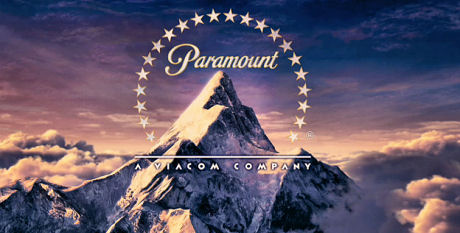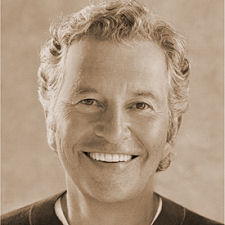I spoke this morning to Jesse Heistand, assistant director of communications at Directors Guild of America, and after some checking he confirmed that Babel helmer Alejandro Gonzalez Inarritu is the first Mexican director ever to be nominated for a DGA Best Director award.
Spielberg/Honsou
Here’s a good Steven Spielberg line passed along by David Carr (a.k.a., “the Bagger”), and heard at Tuesday night’s National Board of Review awards gathering. “As he introduced Djimon Hounsou for Best Supporting Actor at the NBR, Spielberg recalled how his intense, angry appearance while in character as a slave in Amistad scared the other actors. So what’s the problem? Spielberg asked the actors. ‘We think he really means it,’ they complained. ‘Don’t you?‘ Spielberg replied.”
Carr vs. “Dreamgirls”
I doubt if former Paramount Pictures president Gail Berman had anything to do or say about the Dreamgirls Oscar campaign — Terry Press, Nancy Kirpatrick and Gerry Rich are calling the shots, no? — so I’m not sure I grasp the linkage that N.Y. Times Oscar columnist David Carr (a.k.a., “the Bagger”) wrote about this morning when he wondered “if the slow erosion of Dreamgirls leadership in the race to Oscar has anything to do with [Berman’s departure].” But the mere fact that Carr is talking about the Dreamgirls bandwagon losing steam caught my attention nonetheless.
“Dreamgirls had a limited opening and then was expected to explode its way to huge audiences and major awards,” he’s written. “Some silly bloggers took the bait, and while the movie is doing fine, it’s not breaking down the doors. In fact, over the past few weeks, there has been far more talk about the other big D, The Departed, than Dreamgirls.
“Oscars can break careers as well as make them and there continues to be a perception that Ms. Berman and others misplayed a big lead. Others point out that with all-black cast, Broadway-musical DNA and stiff competition from a star-studded cast in The Departed, it was always going to be a dogfight.”
Does this mean Carr will be denied entrance to the Dreamgirls Golden Globes party? Does this mean a couple of goons will walk up to him when he steps out of his Los Angeles hotel during his next visit and say, “Hey, buddy, got a match?” and then whoomph and lights out?
Finke says no Berman replacement
Deadline Hollywood Daily‘s Nikki Finke is reporting that Paramount honcho Brad Grey won’t be replacing Paramount Pictures president Gail Berman, who was fired/resigned earlier today. Meaning that the job of president of Paramount Pictures has been eliminated.

Finke has been told that Grey “doesn’t think there needs to be one after the Dreamworks acquisition since Berman’s slate was permanently reduced to only 6 to 8 pictures a year now. Everything will stay with same with the existing personnel, so there are no plans to up anyone’s titles or responsibilities.
“Instead, Grey will act as ultimate referee of the four creative hubs now reporting to him: Paramount, with 6 to 8 pics, Dreamworks with another 6 to 8 pics, Nickelodeon/MTV with 2 to 4 pics, and Vantage with another 10 pics. Over the years, lots of chairmen/CEOs in the entertainment world have run companies like this.”
Drive-Away Dykes
Ethan Coen and Tricia Cooke‘s Drive-Away Dykes, as profiled by Scriptland‘s Jay Fernandez in the L.A. Times, sounds awesome. “A lesbian road-trip action sex comedy [that] promises all the laughs, thrills and mischief of the old double-bill sexploitation cinema, women on the road, all kinds of action,” blah blah…terrific. Two comments: (a) why didn’t Hernandez or his editors link to what appears to be a Coen and Cooke-sanctioned Drive-Away Dykes site? and (b) Allison Anders will be fine as the director, but c’mon…this thing has Larry and Andy Wachowski’s names all over it. Nobody has delivered hotter mainstream lesbo action (Bound, V for Vendetta) than these two.
Rat’s tails & slithering serpents
Here I am once again lowering myself by tattered rope into the steaming cauldron full of rat’s tails and slithering serpents that is David Poland‘s Hot Blog.”
The bottom line with yesterday’s anti-Wells posting is that Poland likes the Hollywood Reporter‘s Sheigh Crabtree, so he felt not only shocked (“dropped my jaw”) but betrayed when she referenced that letter I received yesterday from a director who said that Children of Men and Pan’s Labyrinth didn’t make the DGA cut because members hadn’t had a chance to see either one, etc.
Then he had the staggering obstinacy to actually question the notion that Brokeback Mountain lost the Best Picture Oscar due to homophobia (the specific reason it lost, I believe, was geezer homophobia — i.e., the “Howard Hughes and John Wayne wouldn’t like it” Tony Curtis contingent)…unbelievable.
Then he described me as “the man who most wants to see Dreamgirls go away.” I dispute that. As I recently told a Dreamgirls operative, “I haven’t taken huge dumps on this film. I don’t like it that much as a whole, but I like the entertaining elements. I said in my first piece on it that I liked it in spurts. The truth is that very few critics are high on it — let’s call a spade a spade — but I haven’t campaigned against it, I’ve held my water, and I’ve always been respectful. Besides, I think Jennifer Hudson is great. And I personally love Bill Condon and look forward to his next film.”
Carlo Ponti is dead
I’ll always think respectfully of Italian producer Carlo Ponti, who died yesterday at 94, for having produced Federico Fellini‘s La Strada, Michelangelo Antonioni’s Blow Up, and The Passenger, Milos Forman‘s The Fireman’s Ball and Ettore Scola‘s A Special Day. But frankly…honestly? The image I’ve had of the guy all my life was that of a corrupt operator with an oily streak who got lucky by knowing the right filmmakers at the right time.
Critic Andrew Sarris once muttered something to me back in the late ’70s about Ponti making payoffs to exhibitors (I think) back in the day. Ponti was 37 when he first eyeballed 15 year-old Sophia Loren in a beauty contest, and you know he must have made a move of some kind right then and there. Ponti married Loren seven years later, when she was 22 and he was 45, in 1957. But God bless the man for engineering the making and release of those classic films. Plus Dr. Zhivago (love Alec Guiness‘s performance in that, and Tom Courtenay‘s) and Two Women .
Best of “Wicker Man”
“Step away from the bike!….take your stupid mask….how’d it get burned?….no, not the bees…noooo!” Due respect to Neil Labute, but this “Best Scenes from The Wicker Man” YouTube clip is hilarious. It didn’t seem all that funny when I saw the film. (Except for Nic Cage lumbering around in the bear suit.)
Whisper campaigns
You know a movie is a formidable Oscar contender when a whisper campaign starts making the rounds against it. Or: if they aren’t whispering against you, you’re not really in the game. What are the current whisper campaigns? I was told this morning that some are calling Little Miss Sunshine “this year’s Sideways“…in other words, too marginal, too blue-state-ish, doomed to lose, etc. Dreamgirls, they’re saying, “is entertaining but isn’t all that good.” The Departed “isn’t about anything.” Remove the aura of Helen Mirren‘s performance and The Queen is “just a pretty good British TV movie.” None of these are very mean or ugly. Has anyone heard any that would qualify as deplorable?
Shaye won’t back down
In an absolutely brilliant display of political gamesmanship and striped-pants diplomacy, New Line CEO Robert Shaye has told SCI FI Wire that the studio won’t work with Lord of the Rings director Peter Jackson on that film or any other film. Ever. As long as Shaye is still running things, at least.


Robert Shaye, Peter Jackson
“It will never happen during my watch,” Shaye is quoted as saying. He said this during a promotional tour promoting The Last Mimzy, a New Line fantasy-family flick. “”I do not want to make a movie with somebody who is suing me.
Inside Jackson, he feels, is “a kind of arrogance. Not that I don’t think Peter is a good filmmaker and that he hasn’t contributed significantly to filmography and made three very good movies. And I don’t even expect him to say ‘thank you’ for having me make it happen and having New Line make it happen.
“But to think that I, as a functionary in [a] company that has been around for a long time, but is now owned by a very big conglomerate, would care one bit about trying to cheat the guy… he’s either had very poor counsel or is completely misinformed and myopic to think that I care whether I give him [anything].”
In other words, Shaye feels personally slighted about Jackson having more or less called him, a chiseler, and his dander is up, his honor has been challenged, and, in the words of the great Tom Petty, he “won’t back down.”
Jackson told TheOneRing.net last November that he and partner Fran Walsh were cutting ties with New Line after learning that the studio was moving ahead with The Hobbit without them. Jackson has said he won’t discuss The Hobbit until a lawsuit against New Line over Rings accounting practices is settled.
O’Toole in the States
The Envelope‘s Tom O’Neil is announcing that Peter O’Toole landed yesterday in New York City. On U.S. soil! And hitting Los Angeles sometime later this week! “You can imagine how nervous his Oscar campaigners have been about getting him stateside for the Globes ceremony and his Oscar campaign,” O’Neil writes. “But he made it — to cyberscreams of joy. Yesterday I got a Blackberry message from one of his campaign chiefs, exclaiming, ‘He’s on the plane!'”
O’Toole “landed in New York yesterday for an appearance on ‘The David Letterman Show’ tonight. Today he’s also shooting a photo session for Vanity Fair‘s Oscar issue and is taping an interview with ‘The View’ that will air on Friday. While in town he’s also doing interviews with Charlie Rose, Today, Nightline and with Jon Stewart for The Daily Show. Plus print interviews with the likes of USA Today and radio chats with All Things Considered on NPR.
“Then he heads west to attend the Golden Globes. How long will he remain in Hollywood? Nobody knows, probably not evenly charmingly cranky O’Toole himself.”
Sienna Miller interview
I’m kind of Factory Girl-ed out, but a chance to speak with Sienna Miller was offered last week and I said sure, shit yeah. I don’t care what anybody says about the movie — Miller’s performance as the fluttery but damaged Edie Sedgwick is a hardcore burrow and totally bulls-eye. And it’s led her, at age 25, to a key realization: “I’m not good at being ‘the girl’, I figured out….it’s got to be more character-y.”

Factory Girl star Sienna Miller in the patio garden at the Chateau Marmont — Tuesday, 1.9.06, 3:12 pm; ditto; ditto; and ditto once more
Every actress in the world realizes this sooner or later, of course. The fact that Miller woke up to it at age 25 (or 24, presuming it sank in sometime early last year) is the noteworthy thing. A lot of actresses who also happen to be very hot blondes tend to wait until they hit their 30s or sometimes even later to absorb this attitude.
Miller, in any case, has played five character-y parts in five films over the last year and a half. Or at least, parts that seem angular in some way, shape or form, to go by their descriptions.
Edie Sedgwick in Factory Girl was first, I think. Then a soap star named Katya being interviewed by a fading political journalist (Steve Buscemi) in Interview, which Buscemi directed. (It will debut on Saturday, 1.20, at the Sundance Film Festival.) A newlywed in Gregory McKenzie‘s Camille, opposite James Franco. An ethereal sort named Jane Bellwether in Rawson Marshall Thurber‘s The Mysteries of Pittsburgh, which costars Jon Foster, Nick Nolte, Peter Sarsgaard and Mena Suvari. And a cameo in Matthew Vaughn‘s Stardust, a romantic fantasy costarring Claire Danes, Robert De Niro and Michelle Pfeiffer.
Her next film, she said, is Charles Shyer‘s Father Knows Less, in which she’ll play the daughter of Dustin Hoffman and Diane Keaton. (Shyer told me a few weeks ago that he hates this title and that he’ll come up with something better eventually.)
We sat down in the outdoor patio area at the Chateau Marmont yesterday afternoon. It lasted about 30 minutes. Here’s the mp3 file. Miller looks great (she was wearing a killer dark-blue Prada dress — check out the photos) but also strikingly unlike Ms. Sedgwick, which is obviously a tribute to the transformative nature of her craft. She also showed up at last night’s party at Drago in Santa Monica for Emilio Estvez and Bobby.

